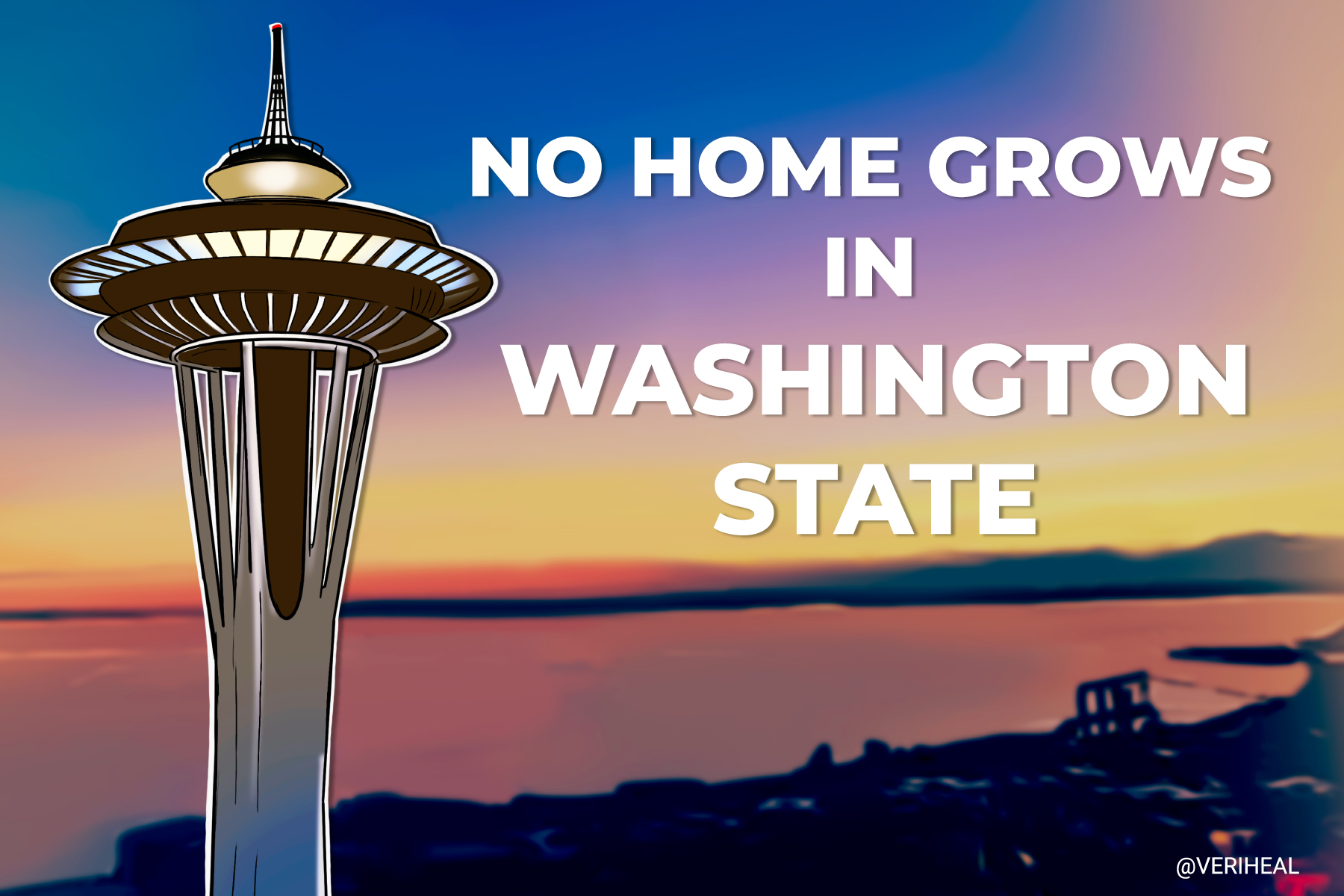Did you know? Washington State, one of the states with the longest-running recreational cannabis marketplaces in the United States, still has policies in place that prevent Washington residents from growing cannabis at home.
So… what gives? When anyone over 21 years of age can legally grow cannabis at home in so many other states, why does the law prevent this activity in Washington? I will explore this situation further within this article.
Comparing Washington to Other US States
Today, I am writing about a situation that shocks many of my out-of-state colleagues, who know Washington to be a pioneer of cannabis legalization. Washington’s famous i502 initiative, which Washington voters passed in 2012 and became one of the first major victories for recreational legal cannabis, was passed nearly 9 years ago.
And yet Washington residents, without a medical cannabis authorization, are not able to legally grow cannabis at home.
How does this policy compare to other states? In total, 19 states have already legalized cannabis for all persons over 21. Washington is one of the few legalized states in which people do not have home grow rights.
Washingtonians benefited from cannabis legalization earlier than most. However, now we wrestle with the original manifestation of the law, with some glaring gaps that still have yet to be addressed.
Why Aren’t Home Grows Not Permitted in WA?
In states with home grow rights, people over 21 are permitted to grow cannabis at home. Home grow rights offer people the ability to create their own medicine, save money, and develop a deeper relationship with the plant.
I believe that offering cannabis consumers the right to grow cannabis at home is a matter of good public health policy. There are thousands of cannabis patients across Washington who rely on cannabis to keep them feeling healthy, active, and happy.
So, why is home grow not permitted in WA? This is a loaded question – and one without a lot of definitive answers.
For historical context, home grow rights were not included in Washington’s original i502 initiative. Since then, cannabis advocates have been pressing for the establishment of home grow rights. As in many years prior, there was a bill proposed in the Washington 2021 legislative session that was crafted to address this gap, HB 1019. But, despite a groundswell of support and a lot of hope from the activists involved, the bill ultimately did not pass.
When asked, Representative Timm Ormsby (who was a sponsor of the home grow bill) was quoted as saying, “The votes simply were not there”.
Why You Should Get Your Medical Marijuana Card
Veriheal has satisfied millions of patients nationwide by giving them access to these benefits
- Larger purchase limits
- Peace of mind
- Enhanced legal protection
- Access to higher potency strains
- Save up to 25% on cannabis purchases
- Skip the line at the dispensary
At this point, it is difficult to understand why the establishment of home grow rights never seems to be an option for Washingtonians.
Many people, naturally, assume that the hesitation surrounding home grow is due to financial concerns. It’s no question that “money talks” when it comes to legislators making policy decisions. But is money a factor when it comes to home grow?
According to an economic impact study that was conducted by Washington State University to assess the impacts of home grow legislation in Washington. This study, referenced by many advocates, legislators, and business owners throughout the latest legislative session, did not suggest a significant negative impact to either the state’s tax revenue or to the profitability of the existing recreational market.
Despite the economic findings, WA legislators have again missed the opportunity to expand home grow rights to the cannabis consuming constituents in their state. I hope that this policy gap can be rectified in the next legislative session.
Gaps in Patient Home Grow Rights
Washington’s medical marijuana patients have some additional rights when it comes to growing cannabis at home, and yet the laws surrounding patient home grow activity have ample room for opportunity.
Authorized medical marijuana patients are permitted to grow cannabis in Washington, but are restricted to a limited number of plants. That said, there are still some risks to patients who decide to cultivate their own cannabis at home.
As it stands, there is no arrest protection in place for Washington’s cannabis patients. This means that at law enforcement’s discretion, officers have the authority to destroy a home garden, even when the patient is able to present their medical cannabis authorization.
Currently, patients on the state registry can be arrested and booked for growing cannabis and the law places the burden of proof on the patient, to be hashed out in court. This policy makes one wonder – why should a cannabis patient, who has registered with the state and “done things the right way”, have to risk unnecessarily entering the criminal justice system for simply growing a plant at home?
While there was a bill, HB 1105, in the 2021 legislative session meant to mitigate this gap, the bill was not ultimately passed. The bill would have essentially fully legalized medical marijuana and ensured that law enforcement, when presented with a patient’s medical authorization, would not have the authority to destroy a patient’s garden or pursue arrest.
In the future, I hope that Washington’s legislators will understand that residents in Washington deserve a right that is practiced in most recreational cannabis states across the country: the ability to grow their medicine at home.
There’s already a group of WA advocates ready to begin anew and speak up for home grow rights in 2022. Thank you – here’s to the good fight!
Author, Share & Comments








